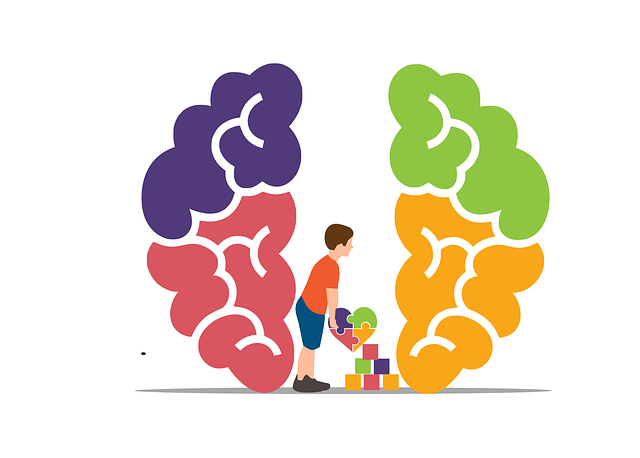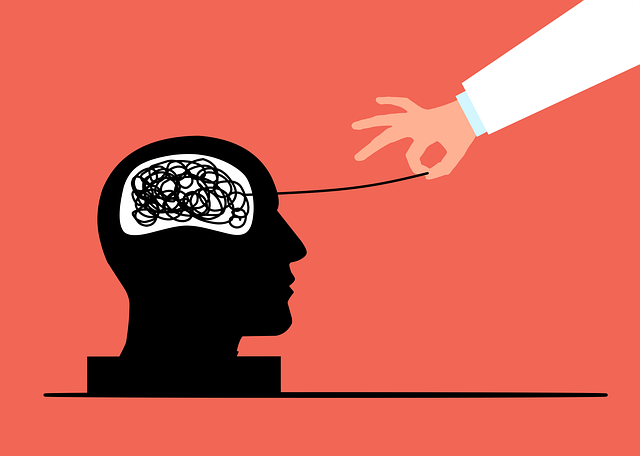Stress management workshops are vital tools for addressing mental health conditions like Adjustment Disorder (AD), offering Emotional Intelligence and coping strategy development through diverse, engaging curricula. These sessions, incorporating group discussions, mindfulness meditation, and case studies, enhance resilience and provide relevant, actionable guidance. Facilitators create supportive learning environments using active listening and peer support, integrating cognitive reframing and mindfulness exercises for improved stress mitigation and therapeutic benefits specific to AD. Expanding these programs through Community Outreach ensures accessible therapy, addressing modern life stressors.
Stress management workshops play a pivotal role in empowering individuals to combat the pervasive effects of stress and adjustment disorders. This comprehensive guide delves into the intricate process of designing and facilitating such sessions. From unraveling the connection between stress and adjustment disorder to implementing effective content and facilitation techniques, we explore strategies to foster a supportive learning environment. Discover how these workshops can be transformative, offering sustainable tools for managing stress and enhancing overall well-being.
- Understanding Stress and Adjustment Disorder: Unveiling the Connection
- Designing Effective Workshop Content for Stress Management
- Facilitation Techniques to Create a Supportive Learning Environment
Understanding Stress and Adjustment Disorder: Unveiling the Connection

Stress is a multifaceted aspect of modern life, impacting individuals across various demographics. Beyond acute stress responses, chronic or prolonged stress can lead to serious mental health conditions such as Adjustment Disorder (AD). AD, often stemming from significant life changes or traumatic events, manifests in emotional distress and challenges adapting to new circumstances. Recognizing this connection between stress and AD is paramount for effective intervention and therapy.
Workshops designed for stress management play a pivotal role in addressing AD by fostering Emotional Intelligence—the ability to understand and manage one’s emotions, as well as recognize and respond appropriately to the emotions of others. Through these workshops, participants gain valuable coping strategies, promote resilience, and enhance their Mental Health Policy Analysis and Advocacy skills. Moreover, Community Outreach Program Implementation can extend these benefits to wider communities, ensuring that accessible therapy for AD becomes a priority in stress management efforts.
Designing Effective Workshop Content for Stress Management

Effective stress management workshops require a well-rounded and engaging curriculum designed to cater to different learning styles. Incorporating a variety of interactive activities, such as group discussions, Mental Wellness Journaling Exercises, and mindfulness meditation practices, ensures participants actively engage with the material. These techniques can help individuals develop coping strategies tailored to their unique needs, fostering a sense of control and resilience in managing stressors related to conditions like Adjustment Disorder.
Workshop facilitators should balance theoretical knowledge with practical applications. Providing clear explanations of stress responses and their impact on mental health, while also offering tools for self-regulation, allows participants to both understand their experiences and gain actionable guidance. Incorporating real-world scenarios and case studies can further enhance learning by demonstrating the applicability of these strategies in everyday life, encouraging a deeper level of engagement and personal connection with the content.
Facilitation Techniques to Create a Supportive Learning Environment

Creating a supportive learning environment is paramount for effective stress management workshops. Facilitators should employ active listening techniques to ensure participants feel heard and understood, fostering an atmosphere of trust and open communication. Encouraging peer-to-peer support through group discussions, sharing personal experiences, and collaborative problem-solving sessions can significantly enhance emotional well-being promotion techniques.
Mind Over Matter principles can be weaved into the workshop design by teaching participants cognitive reframing strategies to challenge negative thoughts and beliefs associated with stress and Adjustment Disorder. Interactive activities, such as guided meditations and mindfulness exercises, help individuals cultivate present-moment awareness, thereby reducing rumination on past stressors or worry about future challenges. These techniques not only enhance overall stress management but also serve as therapeutic interventions for those dealing with adjustment-related issues.
Stress management workshops play a pivotal role in empowering individuals to combat adjustment disorder and its associated symptoms. By combining insightful knowledge from understanding stress, tailored workshop content, and effective facilitation techniques, these sessions offer a holistic approach to well-being. Attendees gain valuable tools for stress reduction, fostering a supportive learning environment that encourages personal growth and resilience. Implementing these workshops is a proactive step towards improving mental health, especially for those seeking therapy for adjustment disorder, ultimately enhancing overall quality of life.














